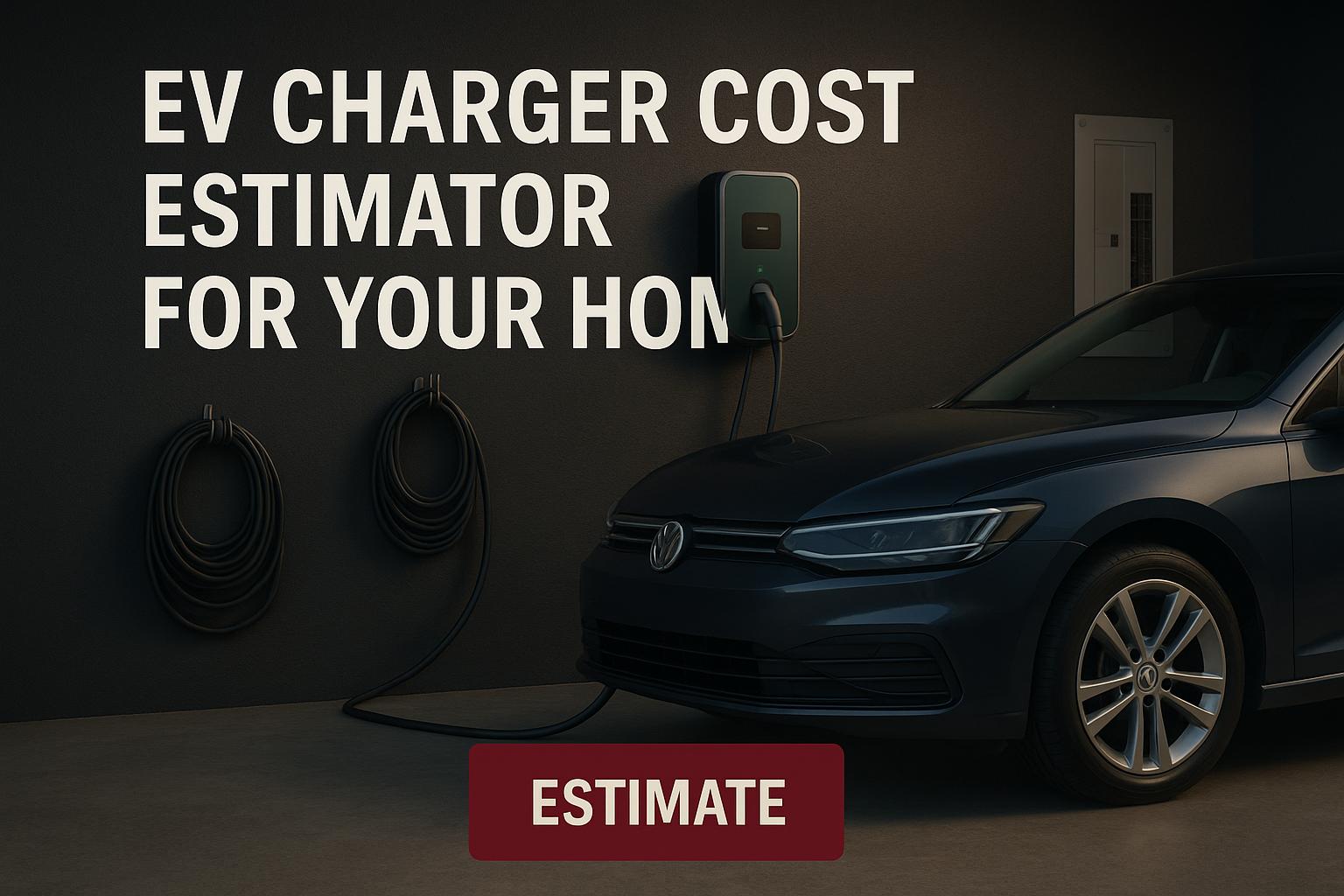![]()
Electrical Products & Services
Estimate the cost of installing a home EV charger with our easy tool. Get a detailed breakdown for equipment, labor, and more in seconds!

If you’re an electric vehicle owner, setting up a charging station at home can save you time and hassle compared to relying on public stations. But how much does it really cost to install one? The price tag for a home charging setup depends on several factors, from the type of equipment to the complexity of the installation.
First, the charger itself matters. A basic Level 1 unit might only set you back a couple hundred dollars, while a faster Level 2 model could run closer to $1,500. Then there’s labor—electricians charge based on the job’s difficulty, like how far they need to run wiring or whether walls need to be opened up. Permits, though often overlooked, can add another $50 to $250. And if your electrical system isn’t up to snuff, a panel upgrade might be necessary, tacking on a hefty $1,000 to $3,000. Location plays a role too; costs in urban areas often outpace rural ones due to demand and contractor rates.
Budgeting for a home EV charging solution means accounting for these variables. Tools like ours help break it down, but always get a local quote to confirm. With a little planning, you’ll be powered up in no time.
Great question! A Level 1 charger uses a standard 120-volt outlet and charges slowly—think 4-5 miles of range per hour. It’s cheaper and often doesn’t need special installation. A Level 2 charger, on the other hand, runs on 240 volts, delivering 25-30 miles of range per hour. It’s faster but usually requires professional installation and sometimes an electrical panel upgrade, which bumps up the cost. Pick based on how often and how quickly you need to charge!
The farther your charger is from the electrical panel, the more wiring and conduit are needed to get power to the spot. This increases labor time and material costs. For example, a 10-foot run might be a quick job, but a 50-foot run across a garage or through walls can add a few hundred bucks to the bill. Our tool adjusts the labor estimate based on the distance you input, so you’ve got a realistic range to work with.
Not always, but it depends on your home’s current electrical setup. If your panel is outdated or doesn’t have enough capacity for a Level 2 charger, an upgrade might be necessary to handle the extra load safely. This can add $1,000 to $3,000 to your project, so it’s a big factor. Check with a local electrician to confirm, but our estimator includes this cost if you select ‘yes’ to give you a heads-up on the potential expense.